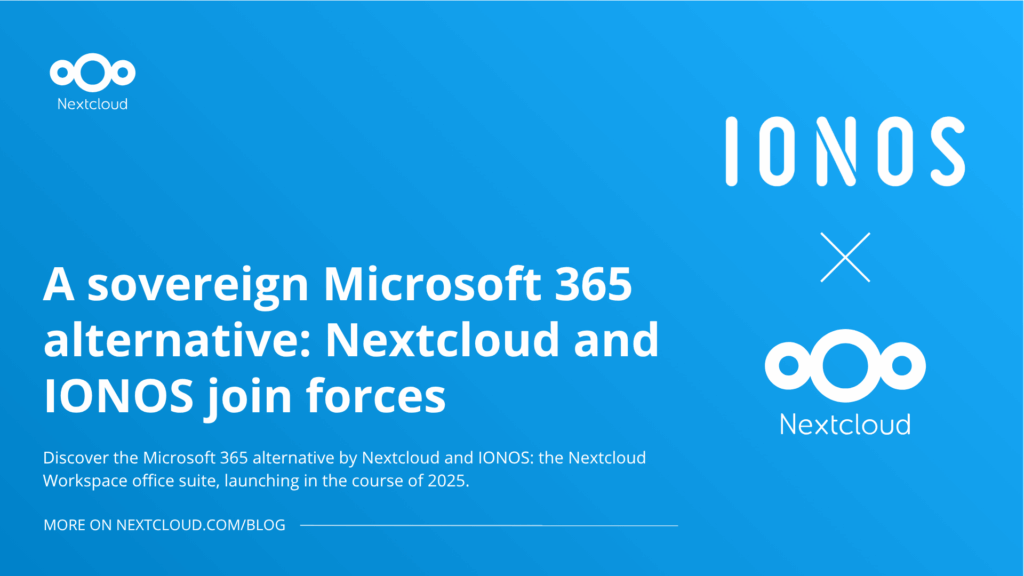Case Study: North-West University in South Africa using Nextcloud and Collabora
North-West University features three locations, with the furthest over 200Km away from Potchefstroom where IT maintains their servers in two data centers. In October 2017, the university introduced a successor to the once-innovative network drive: a modern collaboration platform consisting of Nextcloud and Collabora Online. Today we publish a case study examining the challenges and how Nextcloud and Collabora Online were chosen.
Times are a-changing
The North-West University IT department has to deliver solutions that fit with what a new generation of students and employees are used to.
The IT world has changed in such a way that if the institution, albeit a university, a company or any other organization, does not cater for the needs of their employees, those employees will just go and find these solutions on their own.
Noted Hans Erasmus, Infrastructure Architect at the university. He elaborates that this can be a «cause of chaos,» forcing IT departments to «keep up with the technology.» This prompted a search for a solution that would bring data back under control of IT, providing the benefits of syncing and collaboration while reducing complexity and protecting the security and integrity of data.
People want to be mobile, and they want their data to be as well. Above everything else, it seems that end users want their data with them at all times, and obviously safe as well. Hence, a locally hosted cloud solution.
ownCloud 9 (…) had big technical problems
After trying a number of Enterprise File Sync and Share solutions, including Proof-of-Concepts with two other open source solutions (ownCloud and Seafile) and a proprietary solution, the team concluded these were too limited in terms of platform support, maturity and scalability. It was decided to go for Nextcloud. As Hans noted, «the architecture for NC is laid out well», making the technical side of implementing it easy.
Adding Collabora Online
One of the first things users asked after the University implemented Nextcloud was: “Does this mean we can now edit files online? Or work on them simultaneously?” Hans:
Unfortunately initially the answer was no. But as the service became more popular and more users started working on it, the need grew and it became apparent this is something we would need to implement. Hence, Collabora Online.
The most used feature, Hans noted, is the «available anywhere» aspect:
Working on a document at work, going home, and keeping on going where you left off. The feedback we get is that Nextcloud helps a lot with sharing stuff effortlessly with other people in the organization.
Control over the data was a primary concern and deciding factor in opting for Collabora Online:
Why not use Google docs you might ask? Well, some laws prohibit us from keeping certain types of data in “the cloud”. It is not allowed outside the boundaries of our country. Data security is therefore key. We needed a solution which could be hosted on premises, where we have total control of the data.
Happy users thanks to a Nextcloud Subscription
Hans noted the users are very happy with the solution:
Because they are familiar with products like Google Docs etc, the concept of having stuff in the “cloud” and accessing it through a web browser was not unfamiliar to them. Initially they had some questions about a few functional things, but we sorted those out quickly enough. The product itself is very intuitive (IMHO) so spending a little time on it is all that is necessary to understand how it works.
As there are serious demands placed upon the IT departments, they opted for a Nextcloud Subscription to ensure quality and performance of the service.
Our systems department is working closely with your technical department to resolve any issues that come up. We try to keep the major updates/upgrades to a minimum to reduce the downtime on this service. Our pilot has expanded to include researchers who needs a safe haven for their large data sets. This means that already we’re held accountable for the uptime of the service.
You can download the full case study on nextcloud.com/whitepapers.










